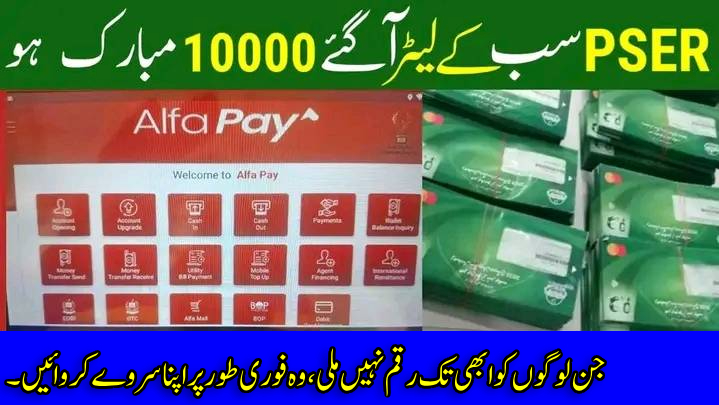The Punjab Socio-Economic Registry (PSER) Survey is a crucial government initiative aimed at collecting updated socio-economic data of households across Punjab. Launched under the guidance of the Punjab Social Protection Authority (PSPA), the PSER Survey ensures that the right people receive targeted support through welfare programs. In today’s rapidly changing world, such surveys are essential for building an accurate, inclusive, and responsive social protection system.
What is the PSER Survey?
The PSER Survey is designed to create a comprehensive socio-economic database for the residents of Punjab. It focuses on gathering essential details like household income, employment status, educational qualifications, disability status, and access to basic facilities like clean water, electricity, and health services.
This data helps the government in identifying eligible families for welfare schemes, including cash assistance, health insurance, educational stipends, and more. The PSER Survey serves as the foundation for the effective implementation of various poverty alleviation programs across the province.
Objectives of the PSER Survey
The main objectives of the PSER Survey include:
- Identifying Eligible Households: Pinpointing families who are genuinely in need of financial or social assistance.
- Updating Previous Records: Ensuring that outdated socio-economic data is replaced with the latest, most accurate information.
- Expanding Welfare Coverage: Including more deserving families who were previously excluded due to incomplete or old data.
- Improving Targeted Programs: Enhancing the delivery of welfare services by making data-driven decisions.
How the PSER Survey is Conducted
The PSER Survey follows a detailed and transparent process:
- House-to-House Data Collection: Trained survey teams visit households individually to collect data using standardized questionnaires.
- Use of Technology: Tablets and mobile devices are used to digitally record the information, reducing human error and ensuring immediate upload to a centralized database.
- Verification and Validation: The collected data undergoes a strict verification process to ensure accuracy and authenticity.
- Confidentiality Assurance: All personal data is kept secure and is used only for official purposes related to welfare schemes.
Surveyors ask questions about household size, the number of dependents, employment details, disabilities, education levels, and asset ownership. Respondents are encouraged to provide honest and complete answers to avoid missing out on potential benefits.
Who Should Participate?
All residents of Punjab, regardless of income level, are encouraged to participate in the PSER Survey. Participation ensures that the government has complete data for planning future welfare programs. Special attention is given to:
- Low-income families
- Women-headed households
- Disabled individuals
- Elderly people with no support
- Widows and orphans
It is important to note that providing false information can result in disqualification from future welfare initiatives.
Importance of the PSER Survey
The PSER Survey plays a vital role in strengthening Punjab’s social protection system. Here’s why it matters:
- Better Policy Formulation: With accurate socio-economic data, the government can create more effective policies targeting the most vulnerable.
- Efficient Resource Allocation: Funds and resources can be directed exactly where they are needed the most.
- Transparency and Accountability: A digital, verifiable database reduces corruption and ensures that benefits reach the intended recipients.
- Inclusion: Marginalized groups who were left out earlier can now be included based on updated information.
Latest Updates on the PSER Survey
As of 2025, the PSER Survey is in its active phase across all districts of Punjab. Special facilitation centers have also been established where citizens can self-register or correct any errors in their existing data.
The government has announced that participation in the PSER Survey will be mandatory for eligibility in future welfare programs such as:
- Benazir Income Support Program (BISP) assistance
- Punjab Ehsaas Rashan Riayat
- Health Insurance Cards
- Educational scholarships for children
Moreover, awareness campaigns are being run across social media, television, and local community centers to educate people about the importance of participating in the survey.
Final Thoughts
The PSER Survey is a major step toward building a more inclusive and just society in Punjab. By participating in the survey, citizens are not only securing potential benefits for themselves but also contributing to the broader development goals of the province. It is every citizen’s responsibility to cooperate fully with the survey teams and ensure that accurate information is provided.
By working together, Punjab can pave the way for a stronger, more prosperous future for all its residents.



